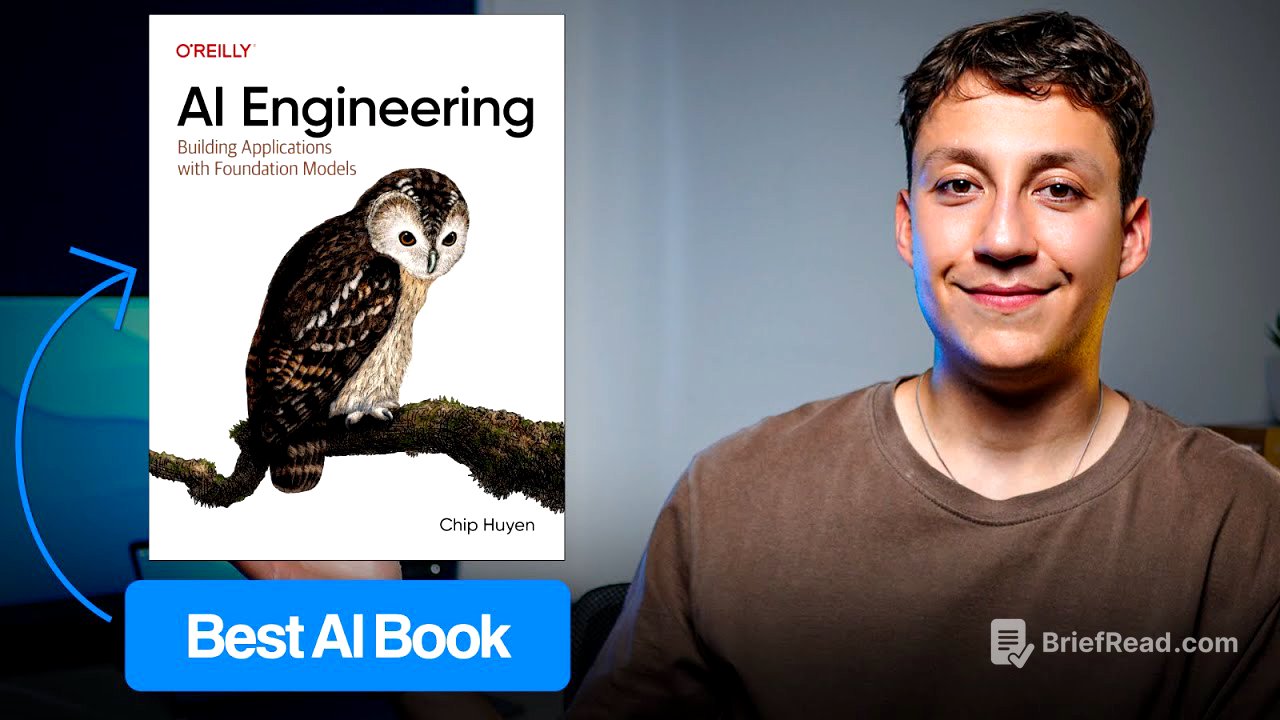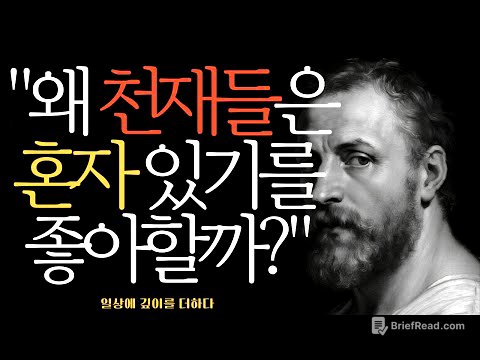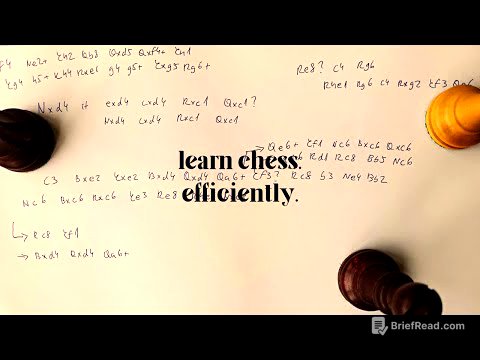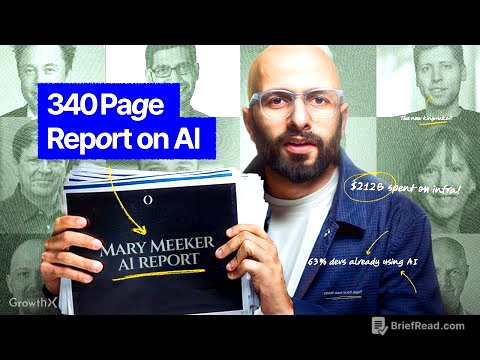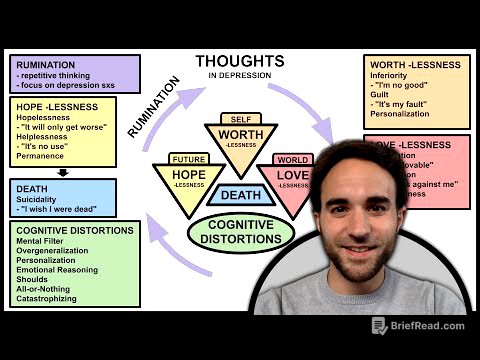TLDR;
This video provides a comprehensive guide to the resources needed to excel in the field of AI and machine learning. It covers essential areas such as programming, mathematics, machine learning, deep learning, and AI engineering, recommending specific courses, books, and practical exercises. The emphasis is on hands-on experience and continuous learning through project-based work, aligning with industry demands for AI engineers who can deploy and productionize AI solutions effectively.
- Focus on Python for AI and ML due to its extensive library support.
- Prioritize practical application and project-based learning.
- Deep learning is crucial for understanding generative AI models.
- AI engineering focuses on deploying AI solutions to production.
Intro [0:00]
The speaker introduces the video's purpose: to share resources, including books and courses, that have been helpful in their four-year journey in AI and machine learning. The resources are categorized into programming and software engineering, maths and statistics, machine learning, deep learning and LLMs, and AI engineering.
Programming and software engineering [0:22]
The video emphasizes the importance of strong software engineering and programming skills for anyone wanting to work in AI. Python is highlighted as the most commonly used language for AI infrastructure projects, particularly in traditional machine learning roles. While Python is recommended as a starting point due to its extensive machine learning libraries, the role of AI engineer may require knowledge of back-end languages like Java, Go, or Rust. The best way to learn Python or any programming language is through practice. The speaker recommends the "Learn Python" course by Free Code Camp and the "Python for Everybody" specialization on Coursera for learning the fundamentals. Hacker Rank and Leak Code are suggested for hands-on experience and interview practice, while Neat Code is recommended for learning data structures, algorithms, and system design. The Harvard CS50 introduction to computer science course is also recommended for complete beginners.
Maths and statistics [3:16]
The video addresses the debate about the necessity of understanding underlying mathematics for working in AI. The speaker argues that a solid understanding of the fundamental maths is essential for becoming a top AI practitioner, especially to comprehend how LLMs and generative models work. The speaker recommends three resources: "Practical Statistics for Data Science" textbook for statistics with hands-on Python examples, "Mathematics for Machine Learning" for linear algebra and calculus, and the "Mathematics for Machine Learning and Deep Learning Specialization" course created by DeepLearning.AI. These resources are targeted to provide relevant skills directly applicable to AI and machine learning.
Machine learning [5:38]
The video explains that what most people refer to as AI is actually generative AI. To be proficient in AI, one must also learn machine learning to a good level. The speaker recommends the "Hands-On Machine Learning with Scikit-Learn, TensorFlow, and Keras" textbook, describing it as the single best book for an AI/ML career, covering fundamentals, applications, and coding in Python. The Machine Learning Specialization course taught by Andrew Ng is also highly recommended for its comprehensive coverage and practical notebooks. Additional resources include "The Hundred-Page Machine Learning Book" by Andriy Burkov as a reference text and "The Elements of Statistical Learning" for a deeper understanding of traditional machine learning algorithms. For a thorough boot camp, the Complete AI Machine Learning and Data Science Bootcamp by Zero to Mastery is recommended, focusing on building projects and providing community support.
Deep learning and LLMs [10:55]
The video transitions into deep learning, explaining it as the foundation for generative AI algorithms like LLMs and diffusion models. The speaker recommends learning PyTorch, highlighting its increasing popularity in research and industry over TensorFlow. The Deep Learning Specialization course is recommended as a follow-on from the machine learning specialization, covering convolutional and recurrent neural networks, and LLMs. For LLMs, the "Introduction to LLMs" video by Andrej Karpathy provides a high-level overview, while his "Neural Networks: Zero to Hero" course guides learners in building PyTorch from scratch, culminating in a GPT model. The "Hands-On Language Models" textbook by Jay Alammar is recommended for intuitively understanding transformers.
AI Engineering [14:12]
The video shifts focus to AI engineering, emphasizing the importance of deploying AI models and solutions to production to generate business value. The role of an AI engineer is described as closer to software engineering, involving the implementation of existing foundational models and building the infrastructure around them. The speaker recommends two books: "Practical MLOps" for productionizing traditional machine learning algorithms and the "AI Engineering" textbook by Chip Huyen for deploying AI and ML systems. The speaker advises against overcomplicating the learning process, recommending starting with one resource and applying the knowledge gained. The video concludes with a tweet by Andrej Karpathy summarizing how to learn and study AI, emphasizing project-based learning, teaching and summarizing in one's own words, and self-comparison. The speaker also offers one-to-one coaching packages for personalized advice.
